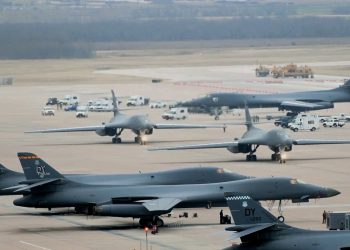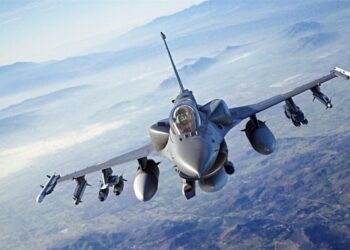WASHINGTON: The Pentagon reopened competition for a long-delayed contract to build aerial refueling tankers, vowing fair treatment for aviation rivals Boeing and Airbus parent EADS.
The Defense Department will use concrete criteria in judging proposals instead of the “confusion” that plagued a failed attempt last year to award a contract, officials said.
“We are this time going to try to be and are being very precise about what the offerors need to do to win,” said Ashton Carter, undersecretary of defense who oversees arms acquisition.
“And it will be crystal clear when a winner is picked, why they won and the other offer did not win,” he told a newsconference.
Two previous attempts to award the 35-billion-dollar contract collapsed amid scandal and bitter disputes between Boeing and its rivals Northrop Grumman and Airbus’s parent firm EADS, the European Aeronautic Defence and Space Company.
Officials said Thursday a draft request for proposals will be posted online on Friday and defense firms and members of Congress would have 60 days to submit comments on the draft.
A formal request for proposal would follow, with a final decision on the tanker deal due next summer.
The politically-charged contract for 179 aircraft to replace the aging fleet of mid-air refueling KC-135 tankers has had a troubled history, marked by acrimony between the competing US and European aviation giants.
In reviewing bids for the contract, the Pentagon decided it would discount a trade dispute between Boeing and Airbus before the WTO as the cases could drag on for years without resolution, Carter said.
The Pentagon also dismissed complaints from Northrop that sensitive information was revealed in the previous competition, possibly harming its chances.
The new bidding process had different rules and Northrop would not be at a disadvantage, Deputy Secretary of Defense William Lynn said.
“This is not a rerun of the prior process,” Lynn told reporters.
Both Boeing and Northrop Grumman have strong supporters in Congress who in the past have heavily criticized how the deal has been handled by the Pentagon.
After a briefing from defense officials, some lawmakers voiced cautious support for the new competition but backers of Boeing wanted to see the WTO’s recent ruling against Airbus taken into account.
“I am very concerned that it does not incorporate the effects of illegal European aircraft subsidies as confirmed by the World Trade Organization,” Senator Sam Brownback of Kansas said in a statement.
The Pentagon said competing firms’ proposals would have to meet more than 300 mandatory technical requirements and would be judged on the price of their bid but on other factors as well, including the effectiveness of the aircraft in war scenarios and the cost of its operation over decades.
The competition would not be decided in a price “shootout,” Lynn said.
Prices of proposals would be adjusted to take into account the cost of fuel use over time and other details, officials said.
Once adjustments were made, the lower priced bid would be chosen unless the difference in price between rival proposals was within one percent.
In that case, the government would consider additional features of an aircraft beyond mandatory requirements, with points assigned to each category, Carter said.
A contract for the tankers was awarded in February 2008 to Northrop and EADS but the deal was withdrawn in July last year after Boeing successfully appealed the decision to the investigative arm of the US Congress — the Government Accountability Office.
The GAO found rival proposals were not evaluated fairly.
In 2004, the Pentagon was forced to drop plans to buy and lease tanker aircraft from Boeing after two senior executives at the firm were convicted in a conflict-of-interest scandal.
One of the convicted Boeing officials had been a high-level US Air Force procurement officer.
Boeing has said it was looking forward to seeing the terms of the draft request for proposal and argued it could offer aircraft at a lower cost than its competitor.
EADS chief executive Louis Gaullois, in a September 8 interview in French newspaper La Tribune, said of the planned tanker bidding: “Our objective is to be in the competition. We are totally determined to be in the running, unless it appears that the request for proposal is biased.”









